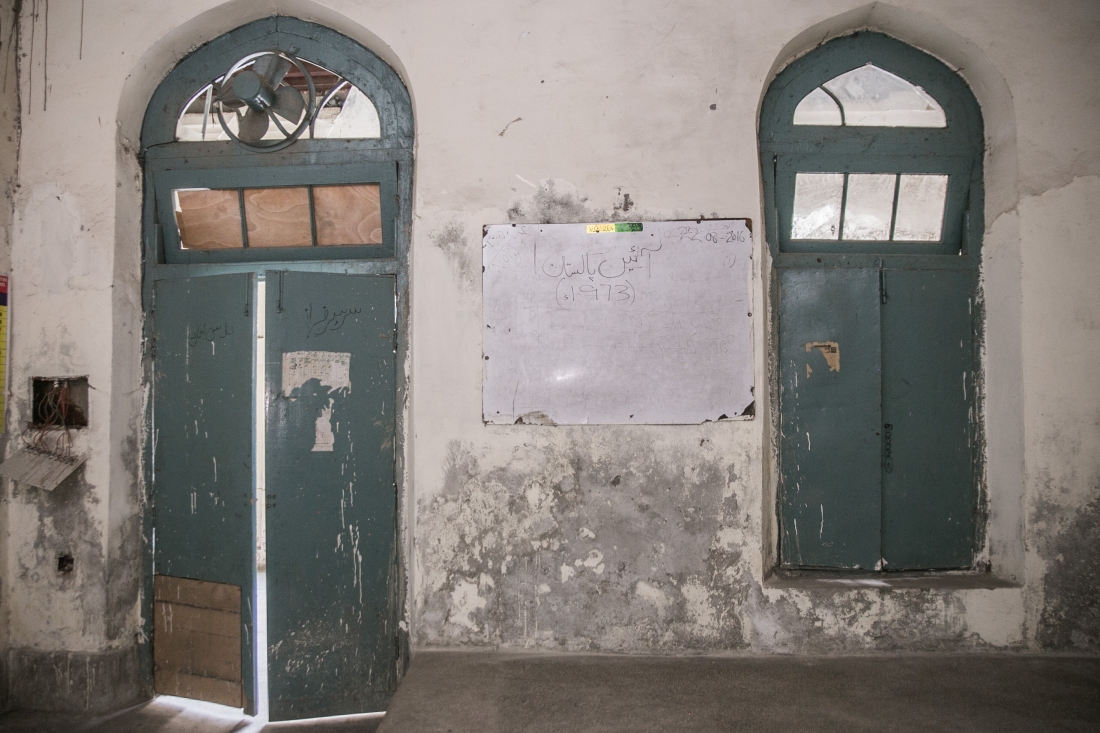Creative - NOMINEE: nida mehboob
nida mehboob
Shadow Lives
Support this photographer - share this work on Facebook.
EXECUTIVE SUMMARY:
It is a well known fact that Pakistan is not good to its citizens who don't practice mainstream Sunni faith. The apartheid of Ahmadi community is one such example. The impact of discrimination of Ahmadis is violent and blooded but the everyday life of any Ahmadi is not easy either.
Students are scared of telling their class fellows about their religion and, in professional spaces Ahmadis avoid discussing faith. From all social gathering to public offices, if you are an Ahmadi in Pakistan, you hide your religious identity or face the social bigotry.
My project is about telling their daily life scenarios of discrimination by re-enactment and testimonies.
BACKGROUND:
The Ahmadi community has been persecuted since the early years of the country’s formation led by religious organisations. The first violent movement erupted in 1953, killing 200 people, leading to the martial law in the province. In 1974, Islamists began a fierce campaign against Ahmadis in Pakistan. As always, violence led the way to numerous Ahmadi casualties and destruction of their mosques, homes, and graves.
As a result of this pressure, changes were made in 1973 constitution that declared Ahmadis "non-Muslims" in Pakistan. Constitutional changes criminalised the religious practices of Ahmadis by preventing them from claiming they are Muslim or from "behaving" as Muslims. In 1984 it was taken even further by Zia- ul-Haq, a military dictator, and anti-Ahmadiyya OrdinanceXX was issued which completely forbade Ahmadis to preach or profess their beliefs. They could not call themselves Muslims like before but now in addition, they could not ‘pose’ as Muslims either. Their worship places could not be called mosque. The persecution of the Ahmadiyya community has been legalised, even encouraged, by the Pakistani government.
In 2010, in Lahore, 99 Ahmadi worshippers were brutally murdered by the Punjabi Taliban by attacking their mosques. Apart from major killings numerous people get targeted in different parts of the country on regular basis because of religious hatred. Ahmadis live in constant fear and most people hide their religious identity to avoid violence, harassment and social boycott.
SUBJECTS:
Students
Families
Working professionals
TARGET AUDIENCE
Ahmadi community
Local/International human rights organisations and law makers
Activists/bloggers
ENGAGEMENT/DISTRIBUTION
Developing an online platform based on my work that creates a social media space for people of the community to share stories "anonymously". Targeted/controlled group to create a sense of shared experiences, storytelling opportunities, without drawing attention from the authorities, while using whisper as a method of resistance and communal bonding and collective struggle.
Collaborating with local human rights organisations to arrange public and controlled exhibitions.
Exhibition in community headquarters
Arranging seminars and talks in closed groups, holding private meetings with students or community elders.
Online publishing of the project to local and international news, photography & human rights organisations.
Doing the project itself is audience engagement. Gathering stories, meeting and recruiting people within and outside community to collaborate with me. Most people in the community itself do not realise the tactics, struggles and frustrations of each other.
Reason
I myself belong to this community and all my life I have lived with fear and hurt. Like most of the Ahmadi's my childhood started with offensive lectures about our community in classrooms. I tried to hide my identity in school, college and work place and have faced hatred, harassment and social boycott whenever I revealed it. I have been rejected by partners for marriage due to my faith. Most of my family has left Pakistan and sought asylum abroad. This has a very strong impact on what I feel about this issue.
I have never seen a photo documentation being done on this topic and I can utilise my position as an artist to tell the story, create a dialogue and broaden discussion about the issue.
Belonging to the same community gives me a unique access to the related subjects and better understanding of the issue. It is very important to have a voice from within the community and start engaging as most people in the community itself do not realise the tactics, struggles and frustrations of each other.
About author:
Nida Mehboob is an independent Filmmaker/Photographer based in Lahore, Pakistan. Graduated as a Pharmacist she decided to leave her field and started photography as a full time career.

